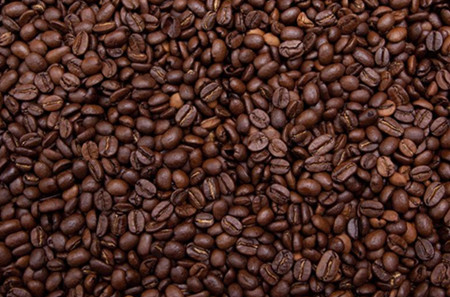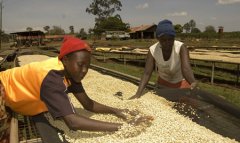Kenyan boutique coffee market Kenyan coffee growing Kenyan coffee quality Kenyan coffee

The Kenyan government takes the coffee industry very seriously, where it is illegal to cut down or destroy coffee trees. Kenyan coffee buyers are world-class high-quality coffee buyers, and no other country can grow, produce and sell coffee on a continuous basis like Kenya. All coffee beans are first acquired by the Kenya Coffee Commission (CoffeeBoardofKenya, CBK), where they are identified, graded, and then sold at weekly auctions, where they are no longer graded. The Kenya Coffee Commission only acts as an agent to collect coffee samples and distribute them to buyers so that they can determine the price and quality. The auction in Nairobi is for private exporters, and the Kenya Coffee Commission pays growers a price below the market price.
After harvesting the coffee, the Kenyan coffee plantation first sends the fresh coffee beans to the cooperative cleaning station, where the washed and dried coffee is sent to the cooperative in the form of "parchment coffee beans" (that is, coffee beans covered with endocarp) ("parchment coffee beans" is the last state of coffee beans before peeling). All the coffee is collected together, and the growers charge the average price according to their actual quality. This trading method generally works well and is fair to both growers and consumers.
Auctions are also organized to meet the needs of dispatchers. This kind of auction usually has a small auction volume (3-6 tons each), with samples with the grower's logo for buyers to enjoy. After the auction, the exporters pack according to different flavors, different qualities and the quantity required by the blenders. This provides a great deal of flexibility for the dispatcher. Quality-conscious Germans and Scandinavians are long-term buyers of Kenyan coffee. Some buyers, especially Japanese businessmen, have expressed dissatisfaction with the Kenyan coffee industry system. But in any case, Kenya's detailed rules and regulations and sound procedures are a model for all coffee-producing countries.
Important Notice :
前街咖啡 FrontStreet Coffee has moved to new addredd:
FrontStreet Coffee Address: 315,Donghua East Road,GuangZhou
Tel:020 38364473
- Prev

Kenyan boutique coffee flavor introduction Kenyan coffee taste characteristics Kenyan coffee roasting
In 1878, the British landed coffee in Africa and set up a coffee plantation in Kenya in the 19th century, when Ethiopian coffee drinks were imported to Kenya through southern Yemen. But it was not until the early 20 th century that the Bourbon Coffee Tree was saint. The Austin Mission (St.AustinMission) was introduced. Origin of coffee in Kenya: most coffee in Kenya (Kenya) grows at 1500 above sea level
- Next

Colombian boutique coffee flavor introduction Colombian coffee taste characteristics Colombian coffee
Colombia's mild climate, humid air, and diverse climate make it a harvest season all year round, with different kinds of coffee ripening at different times. What they grow is Arabica coffee beans of unique quality, and the coffee made from this coffee bean has a rich taste and endless aftertaste, which can be called fine coffee. Nowadays, many people combine Colombian coffee with high quality and delicious coffee.
Related
- Detailed explanation of Jadeite planting Land in Panamanian Jadeite Manor introduction to the grading system of Jadeite competitive bidding, Red bid, Green bid and Rose Summer
- Story of Coffee planting in Brenka region of Costa Rica Stonehenge Manor anaerobic heavy honey treatment of flavor mouth
- What's on the barrel of Blue Mountain Coffee beans?
- Can American coffee also pull flowers? How to use hot American style to pull out a good-looking pattern?
- Can you make a cold extract with coffee beans? What is the right proportion for cold-extracted coffee formula?
- Indonesian PWN Gold Mandrine Coffee Origin Features Flavor How to Chong? Mandolin coffee is American.
- A brief introduction to the flavor characteristics of Brazilian yellow bourbon coffee beans
- What is the effect of different water quality on the flavor of cold-extracted coffee? What kind of water is best for brewing coffee?
- Why do you think of Rose Summer whenever you mention Panamanian coffee?
- Introduction to the characteristics of authentic blue mountain coffee bean producing areas? What is the CIB Coffee Authority in Jamaica?

